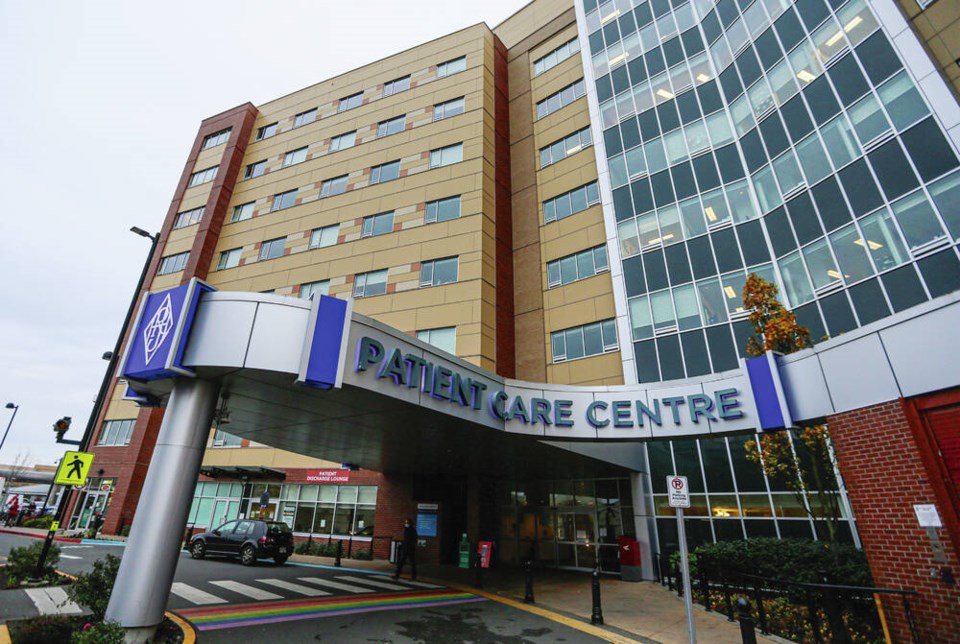Southern Vancouver Island hospitals are under significant pressure but acute-care patients seeking emergency care can get it and patients in hospital are not being prematurely discharged into hotels, B.C. Health Minister Adrian Dix said Tuesday.
“At no time would any patient requiring acute care be sent to a hotel,” Dix said during question period at the legislature.
Dix had been asked about a leaked Island Health memo that seemed to suggest hospitals that were over-capacity — due to increasing COVID-19 cases, a shortage of doctors and nurses, and other factors — were arranging to place patients in hotel rooms.
Dix said health authorities occasionally find alternative accommodations for people ready for discharge — in this case, rehab patients — who don’t have a place to go. Upon discharge, the housing a patient had prior to their hospital stay may no longer be available, suitable, stable or safe.
“It wouldn’t make any sense to take acute-care patients to put them in hotel rooms. That’s not what we’ve done, that’s not what we are doing,” Dix said.
Outside the chamber, Dix said the province has had “capacity issues in our hospitals now for a couple of years.”
Prior to the pandemic, the health-care system was operating at 155 per cent capacity at times, he said, meaning base beds were full but overflow or surge beds were available.
There are 9,229 base beds in the B.C. healthcare system and 2,353 surge beds, Dix said.
B.C. Nurses’ Union vice president Adriane Gear said it’s not a secret that hospitals in the south Islands have been over-capacity.
“This isn’t news,” said Gear. “It’s also complicated by the fact that we’re also short nurses, having more patients than we have funded beds and it’s also exacerbated by other shortages such as lack of GPs, lack of access to urgent primary care centres — even though we have them, they are at capacity by eight o’clock in the morning, and people can’t access preventative care.”
People who haven’t had regular care through a family doctor or nurse practitioner are ending up in hospital emergency rooms “and sometimes being admitted, which is adding further strain on the system,” said Gear.
Island Health said there was a 45-minute ambulance diversion from Saanich Peninsula Hospital to Victoria General Hospital on Sunday. “We never turn patients away who require acute care,” said Island Health.
Dix said it’s likely the health-care system will have to increasingly support patients when they are ready for discharge “because we want our hospitals to be there for people who need acute care.
“And, obviously, when people are ready to go home, they want to go home and we want — we need — them to go home because there are new people coming. If you have someone who doesn’t need to be in the hospital anymore, you want to facilitate that.”
Island Health said the leaked memo from a rehab co-ordinator proposes options “to facilitate discharges from hospital” to free up beds for people who need hospital care. “This is part of our regular discharge planning, before and during the pandemic,” Island Health said.
The memo says: “Please let your co-ordinator know if you have any patients requiring extraordinary measures to facilitate discharges from hospital.” According to the memo, extraordinary measures can include renting a hotel, purchasing special equipment, overtime hours to support discharges, additional workload at straight time or overtime, connecting with other team leaders to expedite services.
During question period, Green Party Leader Sonia Furstenau asked Dix: “Can the minister assure people on Vancouver Island and across B.C. they won’t be turned away when they need health care?”
Dix replied: “Our hospitals on Vancouver Island continue to be ready to serve patients who need care.”
A B.C. Centre for Disease Control COVID-19 report for Island Health between April 10 and 16 said there were 379 new COVID cases, 39 hospital admissions and seven deaths.
The newest report from the independent B.C. COVID-19 Modelling Group, released Tuesday, said the Omicron BA.2 subvariant wave does not appear to have peaked in the province, but it could be smaller than the first wave, based on growing immunity in the population.



